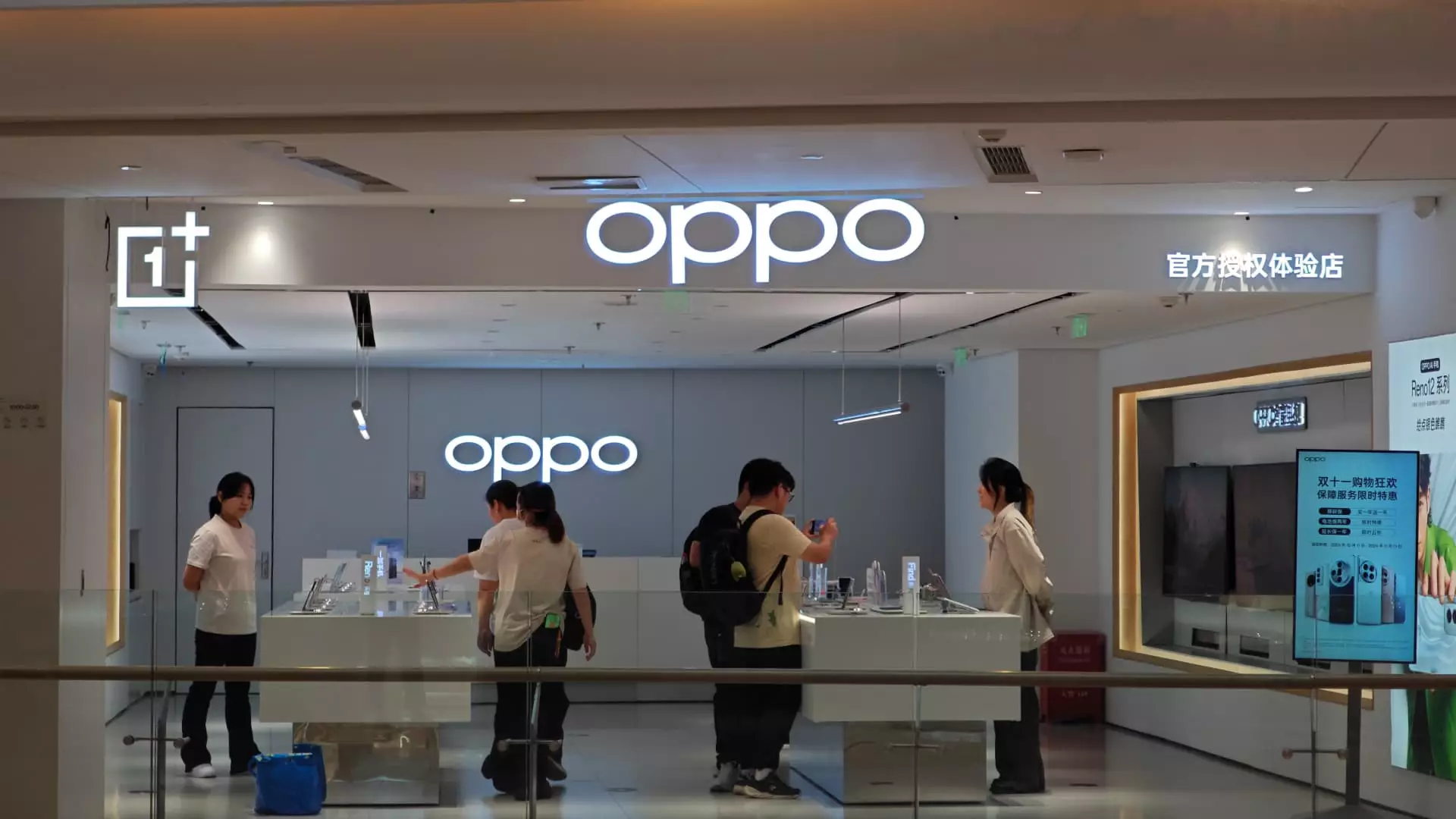In a landscape where digital privacy concerns are escalating, Oppo, the Chinese smartphone manufacturer, has made a bold move by launching a private cloud computing initiative. This strategic direction emulates aspects of Apple’s privacy-centric framework while carving its own niche in the competitive space of artificial intelligence (AI) integration. The collaboration with Google to introduce the Private Computing Cloud marks a significant shift in how smartphone companies approach data security and user privacy.
Oppo’s venture into the realm of private cloud computing comes on the heels of widespread scrutiny surrounding user data utilization and privacy infringements. By leveraging Google’s Confidential Computing software, Oppo aims to compartmentalize user data, preventing sensitive information—such as browsing history and private communications—from being accessed for AI training purposes. This initiative is not merely a surface-level enhancement; it is designed to bolster user trust, an increasingly rare commodity in the technology sector.
The Private Computing Cloud solution is touted to be a cornerstone of Oppo’s strategy to demonstrate a commitment to user privacy, particularly in an era marked by continuous technological advancements and heightened concerns about data safety. As consumers demand more accountability and transparency from their tech providers, Oppo’s proactive step may resonate well with privacy-conscious users, potentially distinguishing it from competitors.
The Competitive Context: Apple and Beyond
Oppo’s privacy initiative mirrors an approach first showcased by Apple when it rolled out its Private Cloud Compute (PCC) system aimed at safeguarding user data from its AI system. This comparison is particularly noteworthy as it highlights a crucial industry trend: the necessity for tech giants to ensure users that their information is handled with the utmost care, especially in regions, such as China, where data security is a primary concern.
While Apple may have pioneered many privacy-centric initiatives, Oppo’s adaptation signifies a growing recognition among technology firms of the importance of privacy in the AI conversation. As AI continues to evolve into an indispensable tool across various applications, the integration of privacy-preserving measures will likely be a focal point for all technology companies moving forward.
Oppo’s cloud computing initiative is accompanied by a series of innovative AI features aimed at enhancing user experience. Among these enhancements are call translation and voice transcription capabilities, promising to deepen the integration of AI into everyday smartphone use. The incorporation of Google’s Gemini AI models into essential applications like Notes, Calendar, and Clock not only showcases Oppo’s commitment to innovation but also reflects a strategic alignment with Google’s advanced technologies.
The forthcoming introduction of the Gemini 2.0 AI model underlines Oppo’s aspirations to cater to a broader audience, with a goal of reaching 100 million users by the end of 2025. This aggressive target, which aims to double the company’s 2024 objective, illustrates an ambitious vision for integrating generative AI features into the daily lives of users. By positioning itself at the intersection of consumer needs and technological advancement, Oppo aims to redefine user engagement in the smartphone market.
The Impact on Industry Dynamics
Oppo’s latest privacy initiative can significantly reshape the competitive dynamics within the smartphone industry. By emphasizing user privacy in conjunction with cutting-edge AI technology, the company not only addresses emerging consumer concerns but also sets a benchmark for others in the industry. As rival companies, including Honor, partner with tech leaders such as Google, the competitive landscape is becoming increasingly multifaceted, prompting all players to innovate relentlessly.
Oppo’s foray into private cloud computing, combined with targeted AI enhancements, positions it as a frontrunner in addressing the dual imperatives of technological advancement and consumer protection. As the intersection of AI and privacy continues to evolve, Oppo’s proactive strategy may not only benefit its user base but also influence wider industry practices, reinforcing the necessity for accountability in the digital age. Consumers today are not only seeking innovative technologies; they demand a discerning approach to privacy, and Oppo appears poised to rise to that challenge.

